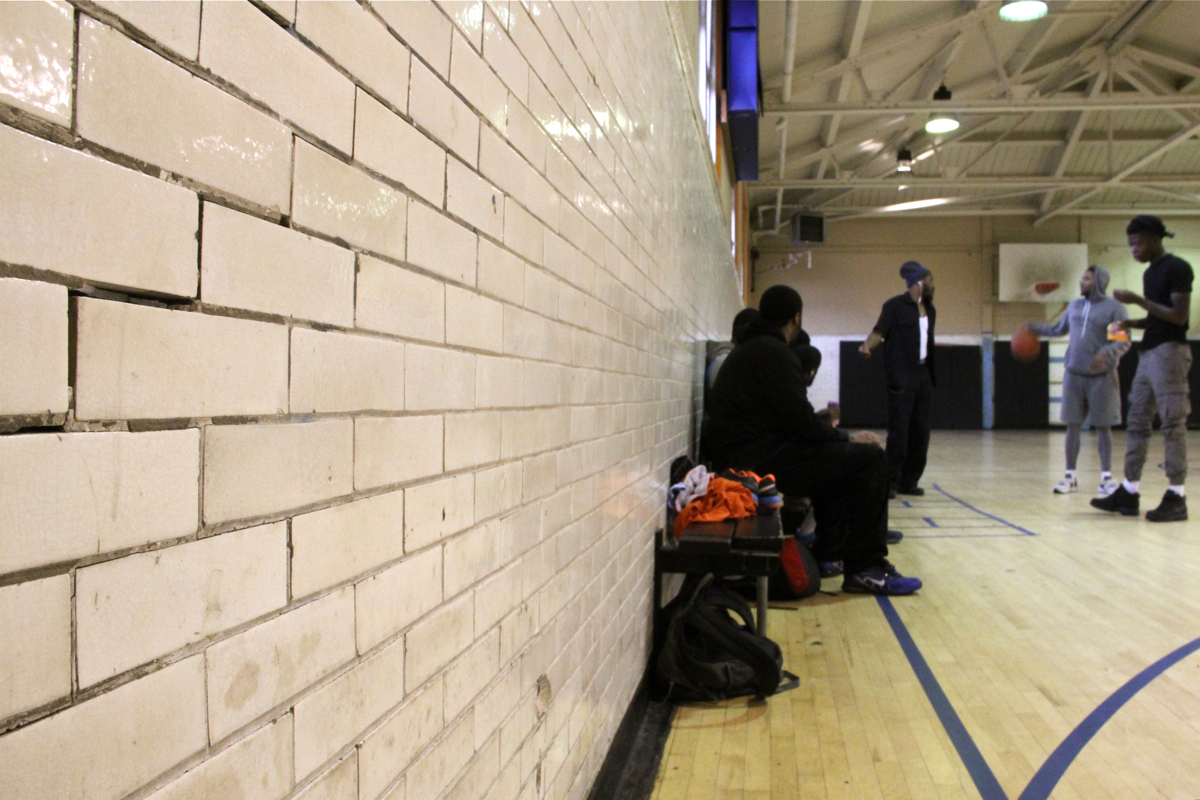Rebuild legislation passes City Council, this time quietly

On a day when those on the fourth floor of City Hall were deafened by the noise of protesters, a key piece of legislation tied to the mayor’s signature capital program, Rebuild, sailed through City Council with uncharacteristic ease. By a 16-1 vote, the first project statement for Rebuild — and a second piece of related legislation — passed the full council after lingering in a committee for most of the winter and spring. Its passage effectively releases $8 million in capital funds to be spent immediately on Rebuild sites.
When those infrastructure upgrades occur, likely beginning later this year, they will mark a turning point for Rebuild — a projected seven-year, $500 million program that aims to reinvigorate recreation centers, libraries, playgrounds, and parks throughout the city while also boosting equitable development in neighborhoods — by advancing the program from its hotly contested conceptual stages into actual shovels in the ground. The Kenney administration originally anticipated 150 to 200 sites would receive Rebuild money over the long term, although the funding currently available will not make it to many of them, not even by a long shot, due to the ongoing litigation involving Philadelphia’s beverage tax. (In addition, due to lower-than-anticipated revenues from the beverage tax, the administration now expects fewer Rebuild projects, although it has yet to announce a new target for the number of projects.)
Not all district council members expect to see Rebuild ribbon-cuttings in the near future. “Nothing associated with Rebuild, because we still haven’t borrowed the money,” Council President Darrell Clarke said after Thursday’s session. “Eight million doesn’t go a long way.”
The bulk of Rebuild’s financing will arrive via $300 million in bonds the Kenney administration has yet to issue. It has declined to do so until the beverage tax is upheld by the Pennsylvania Supreme Court. (If it’s not upheld, there will be no Rebuild, the administration maintains.) Until that verdict comes, the city will use $8 million it has already banked from the capital budget to get the project going.
In essence, Thursday authorized a “soft open” for Rebuild beginning this summer.
“Rebuild will take some time. There is still the outstanding litigation. We’re not going to proceed until that’s resolved,” Clarke said. “But I’m excited about the fact that we moved to the next level in establishing organizations [that] have an unprecedented opportunity to build [or] rehab facilities within their councilmanic districts.”
Last month, Mayor Jim Kenney announced the first two sites to receive Rebuild money: Vare Recreation Center in Point Breeze and Olney Recreation Center. Beyond the pair, it’s not yet known how many other sites will receive capital improvements prior to resolution of the soda-tax litigation. “In the coming weeks, we’ll be announcing additional sites that will start this year, using money from the capital budget,” Rebuild Executive Director Nicole Westerman wrote in a statement.
What’s clearer is the timeline for getting the first couple of projects off the ground. With the legislation passing, Westerman said, the Rebuild team can now move forward with selecting which organizations will be responsible for managing Vare and Olney. This summer, she wrote, “we will launch the application processes to select which project users and businesses will be working on the first set of Rebuild projects.”
Project users refers to the nonprofit organizations that will control the contracts at most Rebuild sites and be held responsible for achieving the ambitious workforce-diversity goals of the project, including a benchmark of 45 percent of all workers being minority laborers (27 percent African-American, 14 percent Hispanic, 3 percent Asian) on each Rebuild site. “Additionally,” Westerman wrote, “we’ll be getting services in place to support small businesses, especially woman and minority-owned businesses, so they’re able to compete for Rebuild contracts and strengthen their business through the initiative.”
Though the project is advancing, the path to achieving those diversity and inclusion goals remains controversial. In addition to the anticipated infrastructure improvements, Rebuild has been billed as a means to inject more diversity into the ranks of the largely white building trades in this city. The project statement has been stalled for months, in part because of ongoing concerns that agreements — two memorandums of understanding (MOU) reached by the administration with the unions outlining a new apprenticeship program to recruit more minority members and a pathway to admitting experienced workers without union cards — were not sufficiently binding.
After the council resumed its work Thursday following a “die-in” demonstration protesting a new affordable-housing plan, a few members of the public made a last-gasp plea to delay Rebuild further. “No MOU with the building trades has succeeded and worked for the past 25 years,” said Rochelle Bilal, president of the Guardian Civic League. “If you do not get it written in the contract, it will not work for anybody in this city.”
“We need you to have the courage to stand up for what’s right and what’s best for our city,” said Emmanuel Bussie, director of a local branch of the National Coalition of African-American Organizations. “We need you to stand together.”
Ultimately, the council did stand almost unanimously (minus the dissenting vote from Councilman David Oh), albeit in passage of the bills under consideration. And with those, Rebuild took another step forward.
This article has been updated to reflect the Kenney administration’s current projections for Rebuild.
WHYY is your source for fact-based, in-depth journalism and information. As a nonprofit organization, we rely on financial support from readers like you. Please give today.



